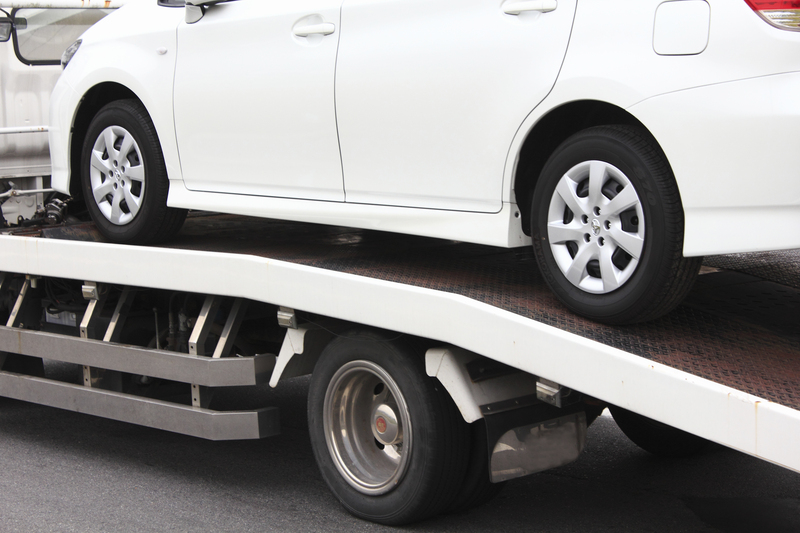Maintaining Your Freezer's Health When Not in Use
Posted on 05/06/2025
Maintaining Your Freezer's Health When Not in Use
When it comes to large household appliances, few are as valuable and hardworking as a freezer. Whether it's for keeping food fresh or stocking up on bulk purchases, your freezer delivers big benefits. But what about periods of inactivity? Knowing how to properly maintain your freezer's health when not in use can extend its life, improve performance, and even save money down the road.
Why Proper Freezer Care Matters During Downtime
Many homeowners overlook their freezer's needs when it sits unused for weeks or months, especially during moving, remodeling, or seasonal closing of holiday homes. However, neglecting to care for your idle freezer can lead to unexpected damage, higher energy consumption, and even unpleasant odors or mold growth.
- Preserves appliance lifespan
- Prevents mechanical issues
- Reduces risk of mold, mildew, and bad smells
- Saves energy and lowers utility bills
Common Scenarios for Unused Freezers
- Extended vacations or trips
- Seasonal homes and cabins
- Moving to a new house
- Kitchen remodeling projects
- Business storage changes
In such cases, keeping your freezer healthy while it is not in use requires a thoughtful approach. Below we'll explore expert strategies that ensure your freezer remains in top shape even during periods of dormancy.

Step-By-Step Guide to Keeping Your Freezer Healthy When Not in Use
1. Empty and Clean Your Freezer Thoroughly
Before placing your freezer on hold, remove all food items. If you leave food inside, you risk spoilage in case of a power outage, and lingering crumbs can attract pests and cause nasty smells.
How to clean your freezer for storage:- Unplug your freezer before cleaning.
- Remove all shelves, bins, and ice trays.
- Wash interior surfaces with a solution of warm water and mild baking soda or vinegar. Avoid harsh chemicals that can leave residues.
- Wipe down the rubber gasket (door seal) with a damp cloth to prevent cracking.
- Dry all components thoroughly before reassembling.
Tip: Place an open box of baking soda inside for a few hours to help eliminate stubborn odors.
2. Defrost Your Freezer
Most modern freezers are frost-free, but if yours requires manual defrosting, do this after cleaning. Allow all ice to thaw naturally and remove it to prevent water damage, mold, or rust.
- Set towels around the base to capture melting water.
- Never use sharp objects to chip away ice, as this can damage the unit.
- Wipe surfaces dry once all the ice has melted.
3. Leave the Door Open for Air Circulation
One of the most important tips for maintaining your freezer's health during inactivity is to leave the door ajar. This prevents moisture buildup, which can lead to mold growth and persistent odors. Many freezers have a small plastic spacer (sometimes called a door prop) for this purpose.
- If your unit lacks a spacer, wedge a clean towel or rolled-up washcloth in the door to keep it slightly open.
- Position it somewhere pets or children can't accidentally close the door.
4. Protect the Exterior
Clean the outside of your freezer with a soft cloth and mild detergent. Remove any dust, dirt, or greasy spots, especially around vents and coils. This will deter pests during storage and keep the appliance looking new.
- For upright freezers: Vacuum the condenser coils at the back or bottom to maximize airflow and efficiency.
- For chest freezers: Check the exterior for rust or chipped paint and touch up as needed to prevent corrosion.
5. Location Matters: Choose the Right Storage Environment
Where you place your unused freezer has a major impact on its health. Consider the following environmental factors:
- Store your freezer indoors when possible to protect it from extreme temperatures.
- Avoid placing it in direct sunlight, damp basements, or uninsulated garages where temperature fluctuations can stress internal components.
- If outdoor storage is unavoidable, cover the appliance loosely with a breathable cloth -- never plastic -- to allow moisture to escape.
6. Periodic Checks and Maintenance
Even when not in regular use, your freezer needs ongoing attention:
- Check for dust buildup on vents and coils every few months.
- Inspect the interior for signs of moisture, mold, or insects. Wipe down as needed.
- Make sure the door remains ajar and hasn't accidentally closed.
- Plug in and run the freezer every few months for a few hours to keep seals and the compressor in good working order.
Should You Unplug Your Freezer When Not in Use?
A common question is whether to unplug a freezer when not using it for extended periods. The answer depends on your plans and the time frame involved:
- For short periods (one month or less): Consider leaving it plugged in and running, but keep it empty. This prevents stress on the compressor from frequent power cycling.
- For longer periods: Unplugging is generally best. This saves energy, eliminates fire risks, and prevents mechanical wear.
Always follow your manufacturer's recommendations, as some freezers require specific steps before being unplugged or stored.
Reactivating Your Freezer After Storage
When it's time to put your freezer back into service, clean it again inside and out. Plug it in, allow it to reach full freezing temperature (this may take several hours), and then restock with food. Check for odd noises, poor sealing, or error lights before use.
- Replace or clean the air and water filters if your unit has them.
- Ensure the appliance is level to promote even cooling and door sealing.
Dealing With Odors and Mold in Unused Freezers
Despite your best efforts, sometimes a closed unused freezer develops that tell-tale musty smell or even visible mold. Don't panic--follow these steps:
Deep Cleaning Steps:- Wipe down all surfaces with a solution of warm water and vinegar, or a commercial enzyme cleaner safe for food appliances.
- Let components air dry fully before plugging in or closing the door.
- Replace any removable shelves or bins that remain stained or retain odor.
- Repeat the baking soda trick: leave an open box inside for several hours to neutralize any remaining smells.
If mold persists, call a professional appliance technician. Persistent infestation can damage the internal lining and compromises food safety.
Freezer Health Tips for Off-Grid, RV, and Portable Units
If you own a portable or RV freezer used for road trips, camping, or off-site food storage, caring for your freezer when not in use is just as important:
- Drain water completely after cleaning.
- Store upright whenever possible to protect the compressor.
- Keep power cords loosely coiled and tucked away from pests or moisture.
- Check adapters and voltage settings before reactivating after long storage.
Common Mistakes to Avoid When Storing a Freezer
Some habits can inadvertently cause damage to your freezer during periods of non-use:
- Leaving the door tightly closed: This traps moisture and creates an ideal environment for mold.
- Forgetting to unplug (for long-term storage): Consumes energy pointlessly and can stress your appliance if left unmonitored.
- Improper environmental storage: Exposing your freezer to extreme weather or humidity can warp components.
- Using plastic covers: These can trap condensation and lead to rust or mildew.
- Neglecting to dry after cleaning: Moisture is the main catalyst for odors and corrosion.

FAQs about Maintaining Your Freezer's Health During Downtime
How long can a freezer be unplugged safely?
There is no strict time limit, but as long as you follow the proper cleaning, defrosting, and drying steps, a freezer can be stored unplugged indefinitely. The key is to ensure good ventilation and periodic checks for moisture or pests.
Can you leave a freezer unplugged with the door closed?
No. Always keep the door or lid slightly propped open. This simple step is crucial to prevent mold growth and lingering odors.
Will an unused freezer use electricity?
If left plugged in but empty, it will still consume a minimal amount of electricity to maintain freezing temperatures. For energy savings, unplug during long periods of non-use after proper preparation.
Is it harmful to frequently turn my freezer on and off?
Frequent power cycling can strain the compressor and reduce the lifespan of your appliance. If temporary downtime is needed (a few days to a week) keep it running; for longer periods, unplug it as described in this guide.
Summary: Keeping Your Freezer in Optimal Condition, Even When Idle
A freezer may be out of sight, but it shouldn't be out of mind. Thoughtful care during periods of non-use preserves its performance, prevents expensive repairs, and eliminates unwelcome surprises when you need it again.
Your freezer's health relies on:- Proactive cleaning and defrosting
- Proper ventilation (door left open)
- Routine inspection while unused
- Smart storage location
- Following manufacturer recommendations
For those wondering how to maintain your freezer's health during downtime, these steps will help you ensure it remains ready for years of dependable service. Take a few extra minutes to prepare your freezer before storage, and you'll protect your investment, avoid costly problems, and always be ready to chill and freeze when life demands it!
Latest Posts
Cost-effective solutions for moving your bed and mattress
Strategies to Properly Pack Your Home Like a Moving Expert
Proven Paths to a Cheerful, Stress-Free Move




